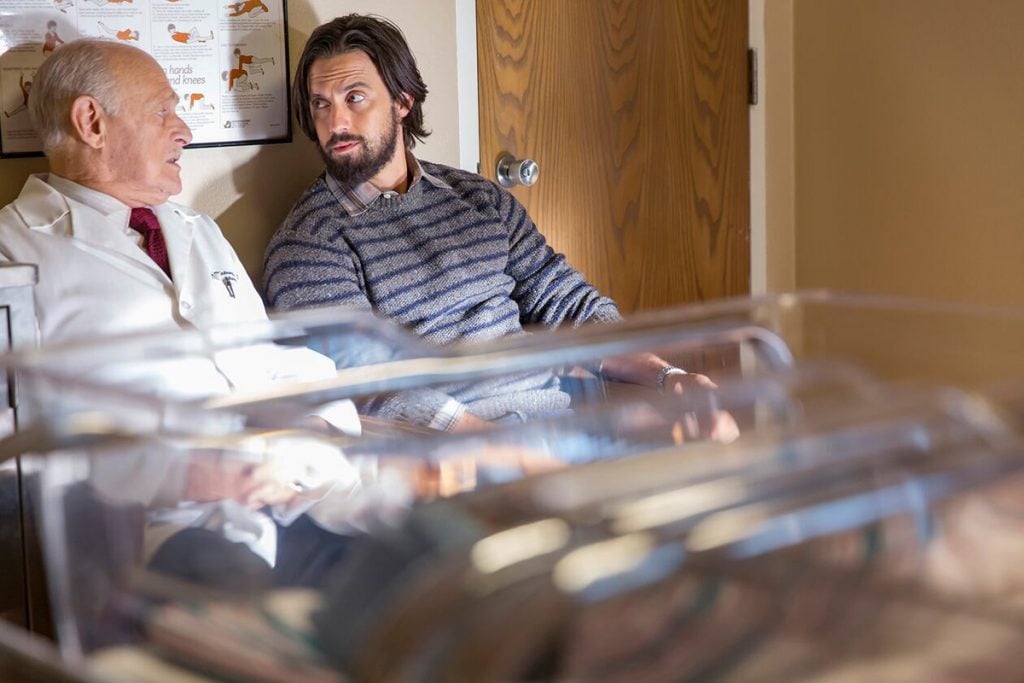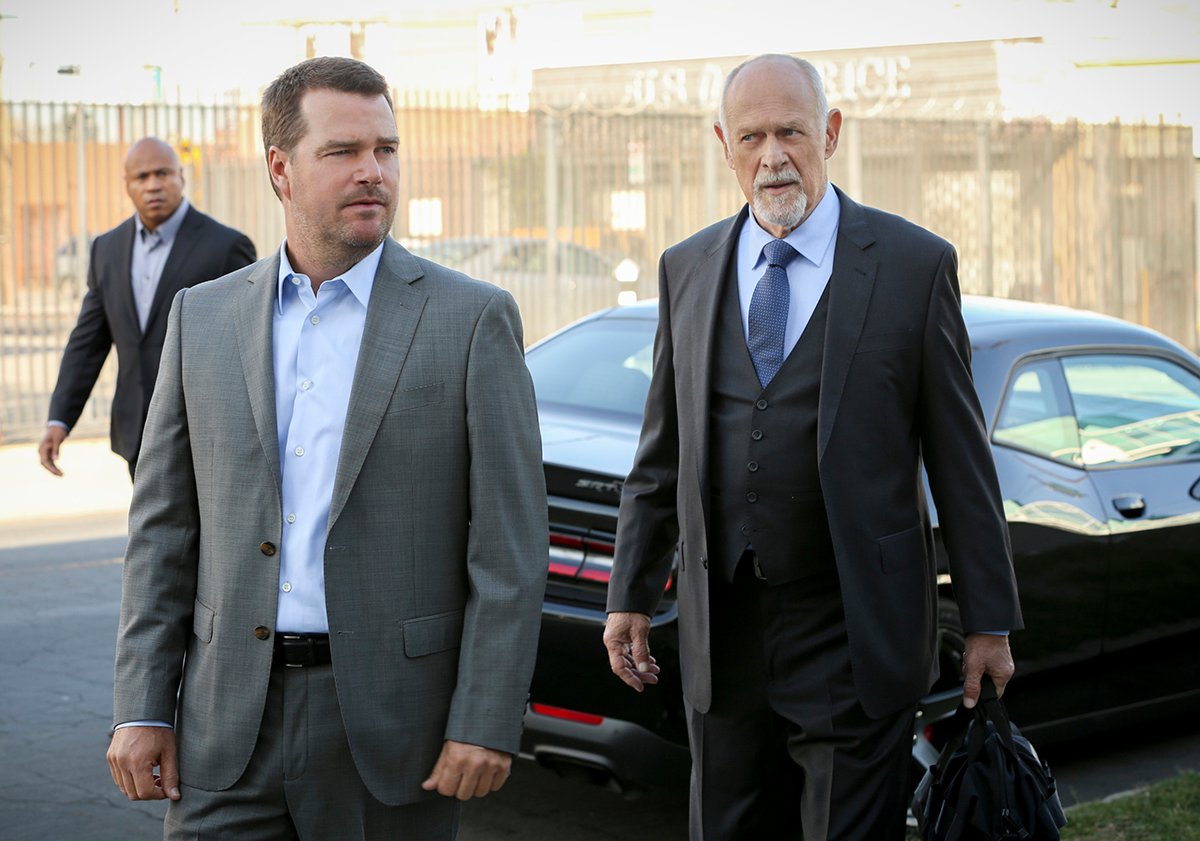The Importance of Catching Lung Cancer Early
- The story of how Gerald McRaney was diagnosed with lung cancer is one of pure chance, but he's using his story as an opportunity to remind others not to skip their routine physicals or other doctor appointments.
- A radiologist who happened to be passing by spotted a speck behind his heart on an X-ray that happened to be a 1a tumor lung cancer; "The smallest they can detect," McRaney says.
- Like all cancers, doctors do a lot better in treating patients when the disease is found at an earlier stage, ideally stage 1 or even when the cancer is pre-invasive. This highlights McRaney’s overarching message: don’t forget your yearly physicals or other doctor appointments. It could save your life.
The actor, best known for his Emmy award-winning performance as Dr. Nathan Katowski on NBC's family drama This Is Us, will now be a regular cast member on CBS's long-running hit show NCIS: Los Angeles. (He was nominated for an Emmy twice.) The new season of NCIS kicks off on Oct. 10. It remains unclear whether McRaney will return for the sixth and final season of This Is Us, which is set to return in January. In the new NCIS season, McRaney portrays Hollace Kilbride, a retired Navy admiral who oversees operations and "keeps everyone on their toes."


So as he's preparing for a cross-country move, as well as new career advancements, McRaney, 74, tells SurvivorNet of his battle with lung cancer and how he came to find out he had the disease. It's a story of happenstance, but serves as a reminder to us all not to forget about annual check-ups and other doctor appointments.
McRaney's Lung Cancer Diagnosis
In 2004, McRaney was 57 years old. He was in New Zealand for a hunting trip when he twisted his right knee. It was a minor trauma, he thought at the time, so he kept up with the trip. But on his way home to Los Angeles, things started to get worse.
"I was hobbling around the house for a month," McRaney tells SurvivorNet.
His wife kept on him about going to the doctor as he continued to limp around, so just to hush her up (his words), he decided to see an orthopedic doctor. It turned out he tore his meniscus on that hunting trip in New Zealand. He needed surgery to repair the tear, so his doctor set up a preoperative physical; a chest X-ray was one thing McRaney needed for the physical.
Happenstance: enter stage left. McRaney tells us that from his understanding, it wasn't even his radiologist who spotted the cancer, it was one who just happened to be walking by when his film scans were displayed on the light box.
"What is that little speck trying to hide behind his heart?" McRaney tells us the radiologist said. That little speck so happened to be a 1a tumor lung cancer; "the smallest they can detect," McRaney says.
Treating Stage One Lung Cancer
Upon learning of his lung cancer diagnosis, McRaney booked an appointment at MD Anderson Cancer Center in Houston; the doctors there confirmed everything the doctors in Los Angeles told him of his condition. He then had the tumor successfully removed. Once the surgery was done, it was only about 10 days until McRaney was back on stage doing what he loves performing.
"I got extremely lucky," he tells us. "If you’re gonna have something happen like this, the way it happened to me was lucky."
For two years after the surgery, McRaney had to return to his doctor every six months to make sure the cancer hadn't returned. Now he goes back once every year for a check-up.
"Fortunately there has been no sign of anything for 16 years now knock wood and thank God that there hasn’t been any recurrence," McRaney says.

The Importance of Catching Lung Cancer Early
"Lung cancer kills more patients than prostate, colon, breast and pancreas combined," Dr. Joseph Friedberg, head of the division of thoracic surgery at the University of Maryland School of Medicine in Baltimore, tells SurvivorNet, "and the reason is, it's completely asymptomatic. It causes no issues until it has spread somewhere."
This is exactly what happened in McRaney's case; he tells us that he wasn't looking for lung cancer, he wasn't even showing any symptoms. There's no way to tell when he would've started to show symptoms, and how far advanced the cancer could've been at that point; and that's one of the most terrifying things about lung cancer.
In Diagnosing Lung Cancer, The Symptoms Often Come Late
There are two main types of lung cancer non-small cell lung cancer, which is the most common type and makes up about 85% of cases, and then there's small cell lung cancer, which is less common, but tends to grow faster than non-small cell; it's treated very differently as well.
There are also four main stages or groups of lung cancer, which are based on the tumor size and location; if there's any lymph node involvement; and if the cancer has spread outside the lung. Stage 1 the stage McRaney was diagnosed with means the tumor is less than or equal to 4 centimeters in size and is limited to a single spot of the lung. In stage 1 lung cancer, there's no lymph node involvement and the cancer hasn't spread; it also means the cancer was caught early.
"To really cure patients, we need to find the disease in (an) earlier stage," Dr. Brendon Stiles, head of thoracic surgery at Montefiore Medical Center in New York City, tells SurvivorNet. "We know that with screening, we can find about 60 (percent) to 80 percent of cases early stage 1. Those (patients) we know we can cure (the cancer) with surgery, or sometimes with surgery and a combination of other therapies."
Lung Cancer Screening Has Come a Long Way, But Only 10% of Eligible People Take Advantage
Like all cancers, Stiles says, doctors do a lot better in treating patients when the disease is found at an earlier stage, ideally stage 1 or even when the cancer is pre-invasive. This highlights McRaney’s overarching message: don’t forget your yearly physicals or other doctor appointments. It could say your life.
"This would be my note to people everywhere: yearly physicals might really do the trick; if you can find these things out early enough, you might stand a chance," McRaney tells us. "The stats of lung cancer aren't the best. I wasn't looking for it, I wasn't showing any symptoms, I just got lucky. But if you get that physical every year, your chances of surviving increase incredibly."
Learn more about SurvivorNet's rigorous medical review process.


